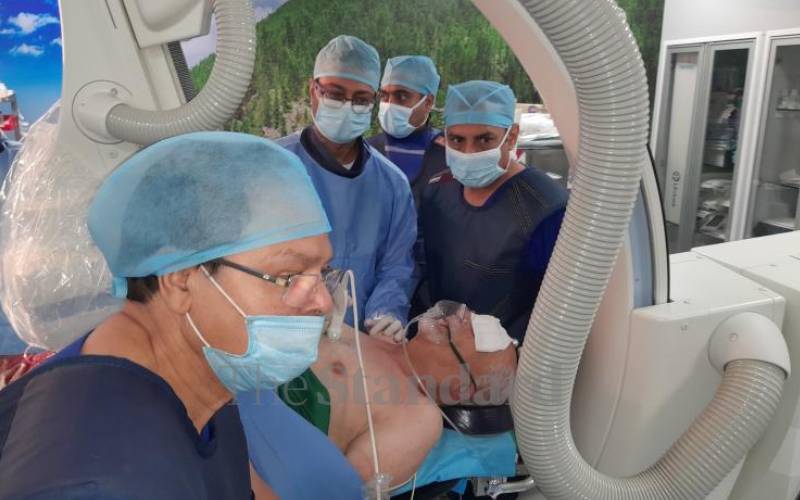×
The Standard e-Paper
Stay Informed, Even Offline

A rare heart valve transplant procedure was successfully performed without surgery on an 83-year-old patient in Nairobi.
The transcatheter aortic valve implantation (TAVI) was the first of its kind in Kenya and the region.